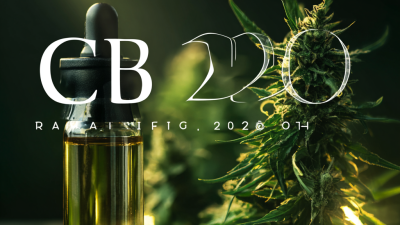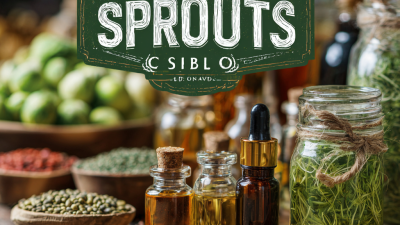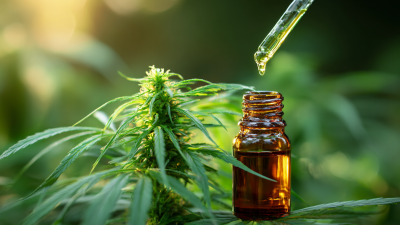As the global market for CBD oil continues to expand, procurement professionals are increasingly tasked with evaluating the complex landscape of its pros and cons. According to a report by Grand View Research, the global CBD market is projected to reach USD 13.4 billion by 2028, reflecting a compound annual growth rate (CAGR) of 21.2% from 2021. This explosive growth presents both opportunities and challenges for sourcing CBD products. While the benefits of CBD oil, such as its potential therapeutic effects and rising consumer demand, are well-documented, procurement experts must also assess potential pitfalls including regulatory compliance issues and quality control concerns. Thus, a comprehensive understanding of the pros and cons of CBD oil is crucial for informed decision-making in procurement strategies, ensuring that businesses can navigate this lucrative yet complex market effectively.

The global market for CBD oil is witnessing remarkable growth, driven by increasing consumer demand and a shifting regulatory landscape. In 2023, the CBD market size was valued at approximately $7.59 billion, with projections estimating a surge to $11.6 billion by 2024 and an astonishing $24.5 billion by 2032. This rapid expansion underscores the importance for procurement professionals to thoroughly evaluate both the benefits and challenges associated with sourcing CBD oil.
Analyses of key players in the CBD oil sector reveal a diverse competitive landscape, featuring established companies as well as emerging entrants. Understanding product profiles, market pricing, and the overall competitive dynamics will be crucial for procurement professionals aiming to make informed decisions. Additionally, the trend towards functional beverages, which are projected to reach a market value of $208.1 billion by 2024, further emphasizes the need to explore innovative applications of CBD and how its integration can enhance product offerings in response to evolving consumer preferences.
As the popularity of CBD oil surges globally, procurement professionals are tasked with understanding its myriad benefits and challenges. CBD oil, known for its potential health benefits such as pain relief and anxiety reduction, presents a unique opportunity for businesses to enhance product offerings. However, navigating the complexities of sourcing and regulatory compliance is crucial.
Tip 1: Conduct thorough research on the sourcing of CBD oil. Understanding the origin and extraction methods can influence both quality and cost. Look for suppliers who adhere to stringent quality control measures and have transparent supply chains.
In addition to quality, procurement professionals should consider the regulatory landscape. CBD laws can vary significantly from one region to another, impacting the feasibility of procurement strategies.
Tip 2: Stay updated on local and international regulations regarding CBD products. Collaborate with legal experts to ensure compliance, mitigating risks associated with non-compliance in your procurement processes. This proactive approach will help safeguard your organization's investments in CBD oil.

As the popularity of CBD oil continues to surge in global markets, procurement professionals must weigh the potential drawbacks alongside the advantages. One critical area of concern is the regulatory landscape, which can be murky and varies significantly from one region to another. Buyers must be vigilant about compliance issues, including understanding the legalities of sourcing CBD oil in specific jurisdictions. Non-compliance can result in significant penalties and could jeopardize the entire procurement strategy.

Another drawback is the efficacy and safety of CBD products, as the market is saturated with varying quality levels. Not all CBD oil is created equal; some may contain contaminants or fail to meet potency claims. This inconsistency can lead to supplier disputes, consumer dissatisfaction, and even health risks.
Procurement professionals need to invest time in evaluating suppliers and ensuring that they provide third-party test results to validate product quality. By taking a proactive approach to these risks, organizations can create a more reliable supply chain for CBD oil in an increasingly competitive market.
When it comes to selecting reliable CBD oil suppliers, evaluating quality standards is paramount for procurement professionals. The burgeoning global market for CBD products has led to a myriad of suppliers, making it crucial to choose those who adhere to stringent quality controls. Look for suppliers who provide third-party lab testing results, which verify the purity and potency of their products. Transparency in sourcing and manufacturing processes is also a vital indicator of a reputable supplier.
Tips for assessing quality standards include checking for certifications such as Good Manufacturing Practices (GMP) and USDA organic certification. These certifications demonstrate adherence to high-quality standards in the production process. Additionally, consider suppliers who offer a detailed breakdown of their product ingredients, allowing procurement professionals to make informed decisions that align with consumer safety and regulatory compliance.
Another key factor is the supplier’s commitment to sustainability and ethical practices. As the demand for CBD oil increases, choosing suppliers who prioritize eco-friendly methods and fair labor practices can enhance brand reputation and trust. Always engage in thorough due diligence, and don’t hesitate to ask questions about your potential supplier’s practices and policies before making a commitment.
| Criteria | Pros | Cons | Quality Standards | Supplier Reliability |
|---|---|---|---|---|
| Source of Hemp | Organic and non-GMO options available | Risk of pesticide residues | Third-party lab testing for potency | Check certifications and testimonials |
| Extraction Method | CO2 extraction offers purity | Higher production costs | Ensure extraction method is disclosed | Supplier's history and reputation |
| Cost | Competitive pricing in expanding market | Varied pricing affects budget | Compare bulk pricing and discounts | Verify customer support and service |
| THC Content | Broad-spectrum oils available | Legal compliance fluctuates by region | Documented THC levels in products | Request references from industry clients |
| Formulations | Various formulations available (oils, capsules) | Potential inconsistent effects | Transparency in ingredient sourcing | Feedback on product effectiveness |
As the global markets for CBD oil continue to expand, procurement professionals must stay informed about the latest market trends that can influence their purchasing decisions. According to a report by Grand View Research, the global CBD oil market size was valued at approximately USD 2.8 billion in 2020 and is expected to grow at a compound annual growth rate (CAGR) of over 18% from 2021 to 2028. This rapid growth indicates a robust future for CBD oil, making it essential for procurement teams to strategically evaluate their options and sources.
Emerging trends such as increasing consumer demand for natural wellness products and growing acceptance of cannabis derivatives are reshaping the procurement landscape. A study by the Brightfield Group suggests that the demand for CBD products could reach USD 16 billion in the United States by 2025. This demand is driven not only by health-conscious consumers but also by a shift in regulatory frameworks that encourage market participation. For procurement professionals, understanding these trends is crucial for capitalizing on new opportunities while navigating potential challenges in sourcing quality CBD products.
This chart illustrates the evaluation of pros and cons of CBD oil in global markets, showing the percentage of procurement professionals considering various factors in their decision-making process.







